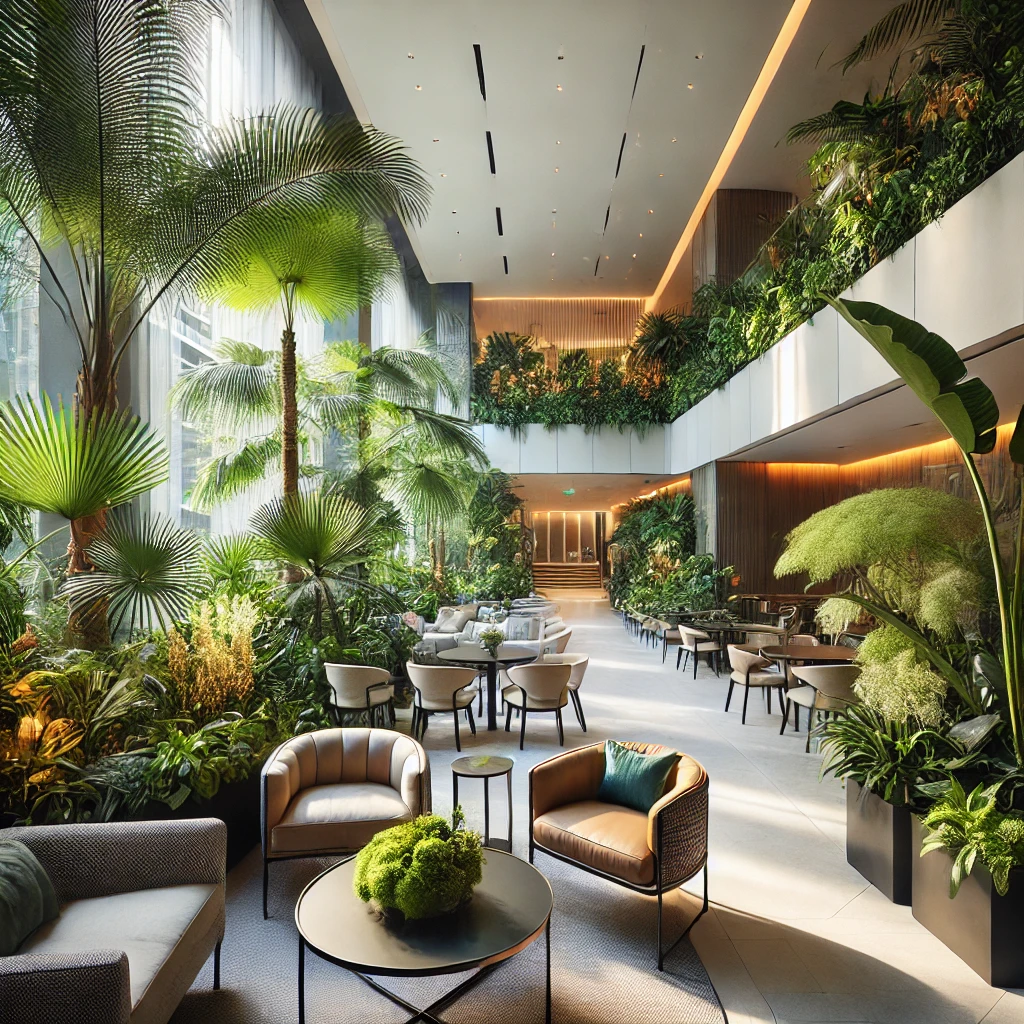Introduction
In the bustling heart of Brisbane, where modernity meets subtropical charm, the role of native plants in hotel lobby air quality has emerged as a vital factor in enhancing guest experiences. Hotels in Brisbane, known for their iconic landscapes and cultural landmarks, are increasingly leveraging the benefits of native flora to create invigorating indoor environments. This article explores the crucial role of native plants in improving air quality within hotel lobbies, highlighting their significance for the hospitality industry in Brisbane and beyond.
The Role of Native Plants in Brisbane Hotel Lobby Air Quality
1. Natural Air Purifiers
Native plants act as natural air purifiers, filtering out pollutants and releasing fresh oxygen. Species like the Australian native Fan Palm and the Lemon-scented Myrtle are effective in improving indoor air quality. For example, the Hotel Grand Chancellor in Brisbane has integrated these plants, creating a rejuvenating space for guests amidst the city’s hustle.
2. Enhancing Aesthetic Appeal
Brisbane hotels like the Stamford Plaza Brisbane integrate native plants to reflect local culture. Cycads and Bangalow Palms not only purify the air but also offer a stunning visual appeal, aligning interiors with the region’s natural beauty.
3. Sound Absorption
In bustling lobbies, noise can be overwhelming. Native plants such as the Kangaroo Paw absorb sound, creating a serene environment. The Hyatt Regency in South Bank showcases this benefit, ensuring a peaceful ambiance despite high foot traffic.
4. Temperature Regulation
Native plants from subtropical regions, like the Carmona Tree, adapt well to Brisbane’s climate, helping regulate temperature. The QT Hotel Brisbane uses such plants to maintain舒适 temperatures naturally, enhancing guest comfort.

5. Stormwater Management
Native plants absorb rainwater efficiently, reducing runoff. hotelsnear Roma Street integrate green roofs with plants like the Broad-leaved Paperbark, contributing to urban stormwater management.
6. Pest Control
Native plants attract beneficial insects, deterring pests. The Pullman Brisbane City uses native grasses to manage pests naturally, promoting a healthy environment.
7. Biodiversity Promotion
Brisbane’s native plants support local wildlife. hotelsnear South Bank feature gardens that attract birds and insects, fostering biodiversity and offering guests a connection to nature.
8. Health and Wellness
Exposure to native plants reduces stress and improves mood. The舉報告سائل buenos aires hotel in Brisbane incorporates plants like theweeping Lillypilly, enhancing guest well-being.
9. Educational Opportunities
Hotels can educate guests on native plants. The Eagle Farm Racecourse Hotel offers guided tours showcasing indigenous flora, promoting environmental awareness.
10. Cost-Effective Solution
Native plants are low-maintenance and cost-effective. hotelsnearFortitude Valley use hardy species, reducing long-term expenses.
Conclusion
The integration of native plants in Brisbane hotel lobbies significantly enhances air quality and guest experience. By purifying air, regulating temperature, and promoting biodiversity, these plants address local challenges like urbanization. hotels in Brisbane, iconic landmarks like South Bank, and neighborhoods like Roma Street benefit greatly. Embracing native plants is not just a trend but a sustainable practice, offering both environmental and hospitality advantages.
